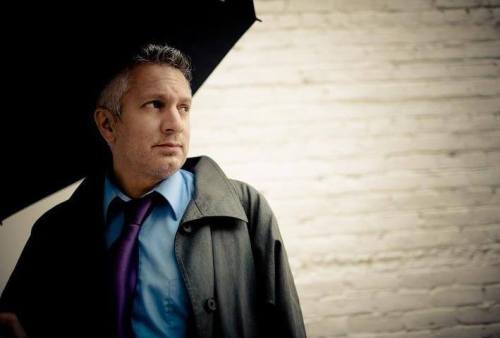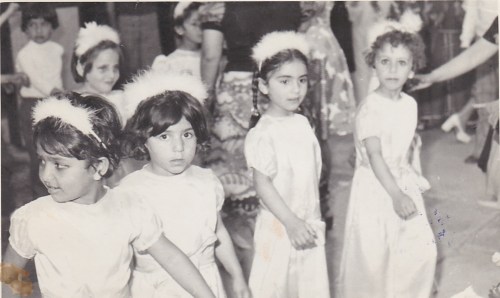
In 2012, I went on a four-day writer’s retreat in Colorado, which was led by Random-House author and literary agent Cicily Janus. Cicily, a young mother of three children, brought many authors, editors, and publishers together through her retreats. She had a number of health complications and passed away last year, but those who formed friendships thanks to her visions and dreams have continued to inspire each other. One such person is Nicholas Belardes, whose career I’ve followed with admiration – especially when he posts Facebook pictures of the beautiful locations where he writes and takes walks.
NAMOU: When did you decide to become a writer?
BELARDES: There was a moment early in grade school where I was asked to write a story. It turned out to be one of the first moments I was confronted with the idea that actual, real people write stories, that someone has to imagine them, someone’s mind has to be filled with words, and somehow those words have to spill onto the page.
I remember writing about hairy outer space creatures. It was kindergarten. Mrs. Robinson was the teacher. She always wore her brown hair in a bun. We’d visit her house, play with her dogs and cats. Her son lived in a converted barn behind a pond and he’d tell me stories, offer me food, tell me he was eating octopus. I’d run back by the pond imagining he was a real adventurer (because every adventurer must have octopus in jars to snack on). That time in the early 1970s in San Jose, California sparked something in me that never went away.
Actually deciding on becoming a writer was a slow process, something that haunted me on and off for many years. It flared up during episodes in my life where I took on writing jobs: creative writer for the Fremont Street Experience in Las Vegas, scene blogger, managing editor/journalist for an ABC News affiliate. It wasn’t until a few years ago that I dedicated my entire being to writing fiction, essays and poetry. I’d just been sidetracked up until then.
NAMOU: Why do you write?
BELARDES: I really don’t think there’s anything I’m skilled at other than writing. I fail at everything else.
NAMOU: What have you written and what are you working on at the minute?
BELARDES: Novels, an essay collection, a book of oddities, books of poetry, a memoir, cheesy animated shows, news articles, and a small mountain of short stories and graphic narratives. Some of all that is published, including some short stories in journals. “St. Augustine the Starfighter” is in Carve Magazine. “Gaspar” is in Pithead Chapel. “A Different Kind of Boiling Point” is in the Acentos Review.
At the minute I’m revising a literary fantasy novel. Last week I finished ghostwriting a novel for an African client. I take on ghostwriting to pay the bills. My personal efforts are mostly with the literary fantasy, though I am slowly developing a Middle Grade novel, which is being overseen by a literary agent. It’s all very weird, because the life of a writer is frustrating, exhilarating, annoying, depressing, challenging and fun!
NAMOU: What are your ambitions for your writing career?
BELARDES: For now it’s a simple vision of finishing the literary fantasy and finding a literary agent who cares about it seeing the light of day as much as I do, and writing more publishable short stories.
NAMOU: Do you write full-time or part-time?
BELARDES: Full-time.
NAMOU: Where do the your ideas come from?
BELARDES: An idea can come from anywhere, a friend’s story told over the phone, a news article, an experience, brainstorming interests, a political reaction, a social reaction. As a dual ethnic I try to find connections to both my Latin X side and my white side. Some stories blend the two. Some are one or the other. It also really depends on what I’m intending to write at the moment.
Even ghostwriting may include a pre-formed outline, or one I completely make up to expand from. Those ideas come from discussions with a client, from pure creativity, research, and from my experience of understanding story and character. Maybe we can think of the realm of ideas as cloud banks whispering around us. They can take any shape. A writer must find a way into them.
NAMOU: How do you think you’ve evolved creatively?
BELARDES: I’ve become more socially aware. Reinventing myself along those lines has been important. Caring about the plight of farm workers, or immigration reform, or socially and culturally oppressed areas like that of Bakersfield, California, where I spent much of my life. It helps me to understand that good writing doesn’t just involve language, or charged language, but what Ezra Pound once wrote as “language charged with meaning to the utmost possible degree.”
Anything else, when it comes to my own work, is a waste of time. I have to consistently create a body of work that reflects this socially aware version of myself. For instance, in the short stories I mentioned, “St. Augustine the Starfighter” tackles child cruelty, and how we can grow out of the cruelty we inflict on the world as children. “Gaspar” is about living within an oppressive system and taking on those same characteristics (and needing a way out). “A Different Kind of Boiling Point” is about a retired farm labor leader. She realizes her own imperfections and failures are part of a path of penance and revolution. If we don’t find this aboutness in our stories, then why write them?
NAMOU: What is the hardest thing about writing?
BELARDES: Accepting more defeats than victories. There is an article I read recently that every writer should aim for a hundred rejections a year. That’s really not bad advice!
NAMOU: What advice would you give to aspiring writers?
BELARDES: Aspiring writers really need to figure out what I meant by “language charged with meaning to the utmost possible degree.” Once they do, they will be on to something in their own lives, and in their own words. Oh, and take walks. Lots of walks. And connect to powerful writers. Be inspired by them. Say hello to them once in a while.
To learn more about Nicholas Belardes’ work, visit his website: onhttp://www.nicholasbelardes.com/









 I was scheduled for a 20 minute interview at 2:30 pm by award winning talk show host Ed Tyll on Starcom Radio Network. Within a minute of our interview, I realized this was not the typical interview. It was a political rumble (one of my listeners called it egotistical bullying). I held my ground, threw my own political punches and 80 minutes later, he said, “You’re the most provocative person I’ve interviewed. You’re intelligent and brilliant and you never lost your femininity. I haven’t gone this much over an interview in 3 or 4 years.” He has been in this business for over 40 years. Oh, and he also invited me out to dinner.
I was scheduled for a 20 minute interview at 2:30 pm by award winning talk show host Ed Tyll on Starcom Radio Network. Within a minute of our interview, I realized this was not the typical interview. It was a political rumble (one of my listeners called it egotistical bullying). I held my ground, threw my own political punches and 80 minutes later, he said, “You’re the most provocative person I’ve interviewed. You’re intelligent and brilliant and you never lost your femininity. I haven’t gone this much over an interview in 3 or 4 years.” He has been in this business for over 40 years. Oh, and he also invited me out to dinner.